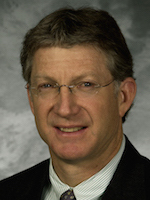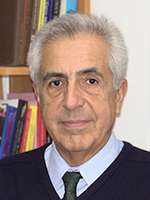Four UW-Madison faculty members named Hilldale Award winners
Four University of Wisconsin–Madison faculty members have been chosen for the prestigious Hilldale Awards, an annual recognition that dates back to 1987.
The recipients, one each from the four faculty divisions (biological sciences, social sciences, physical sciences, and arts and humanities) will be honored at the April 6 meeting of the Faculty Senate. The award recognizes scholarly contributions in teaching, research and service and comes with a $7,500 prize.
This year’s Hilldale Award recipients are:
Arts and Humanities: Rachel Feldhay Brenner
Max and Frieda Weinstein-Bascom Professor of Jewish Studies in the Mosse/Weinstein Center for Jewish Studies

Rachel Brenner
Rachel Brenner has published six books and 50 or so peer-reviewed articles, contributed 19 scholarly anthology chapters, delivered numerous public lectures and served on multiple committees across campus. All the while, she has still made time to teach Hebrew literature in Hebrew, and several popular courses.
Among them are a large lecture course on Zionism and a course on the representation of women in modern Jewish literature. Brenner has been honored with three campus teaching awards.
She has also made numerous contributions to the fields of Hebrew literature, Jewish and non-Jewish literature, and Holocaust studies, and has been recognized through numerous other fellowships, scholarships and career awards.
“We are thrilled that Rachel Brenner was awarded a Hilldale Award,” says Simone Schweber, UW–Madison Goodman Professor of Education and Jewish Studies and Chair of the Mosse/Weinstein Center for Jewish Studies. “A crowning achievement for a deserving scholar, this award marks a pinnacle in a productive and distinguished career.”
Physical Sciences: James Skinner
Professor, Department of Chemistry

James Skinner
“Jim is one of the leading theoretical chemists in the world,” writes Robert J. McMahon, the UW–Madison Department of Chemistry Helfaer Professor and Chair in his nomination letter. “His record speaks for itself.”
Indeed, James Skinner is a member of the National Academy of Sciences, a prestigious recognition reserved for only the most productive and influential scientists. He has given more than 300 invited talks and has won numerous recognitions and awards. At the same time, the chemist averages near perfect scores on annual university teaching evaluations, and has won the coveted Chancellor’s Distinguished Teaching Award.
Skinner’s work has focused primarily on the structure and dynamics of solids and liquids, particularly water, and has contributed substantially to his field.
“A hallmark of Jim’s science is his ability to connect sophisticated theory with state-of-the-art experiments,” McMahon writes. “This ability to connect with measurements is one of the reasons his impact is both broad and deep.”
Biological Sciences: Daniel Gianola
Professor, Department of Animal Sciences

Daniel Gianola
In the 1980s, Dan Gianola was recognized as the world’s authority on using statistical methods to link genetic traits in animals to important characteristics like fertility, disease resistance and survival. Today, he is credited with introducing and promoting the use of unique statistical approaches in animal breeding and quantitative genetics.
Dan “is often named among the recognized pioneers and leaders of the science of animal breeding,” writes animal sciences Professor and Chair Dan Schaefer, who nominated Gianola for the award.
Gianola holds honorary degrees from six academic institutions and has been a visiting professor in 13 countries. He has published more than 280 peer reviewed papers, three books, trained more than 90 graduate students and post-doctoral researchers and won numerous national and international awards.
Contributions he made to the field of theoretical genetics 25 years ago have had a profound impact on the field over the last decade, and his work has touched several areas of genetics.
“He helped solve problems in statistical genetics once thought to be unsolvable,” Schaefer writes.
Social Studies: Jane Collins
Professor of Community & Environmental Sociology and Gender and Women’s Studies
Jane Collins
“Jane Collins is a gifted and creative thinker, and an innovative, highly productive, internationally recognized scholar,” write community and environmental sociology Chair Jess Gilbert and gender and women’s studies Chair Judith Houck in their joint nomination letter.
Throughout her career — which includes more than two decades at UW–Madison — the economic and cultural sociologist has made substantial contributions to our understanding of labor processes and globalization, labor and global commodity chains, shifting frameworks for assessing economic value, and global cultural studies, focusing primarily on women’s work. It’s taken her from arid agricultural fields in Brazil to coffee farms on the eastern slopes of the Andes to apparel factories in Mexico and the U.S. and to neighborhoods in Milwaukee and Racine.
Collins offers a popular graduate seminar that has inspired more than two dozen dissertations. She has mentored 22 graduate students and served on more than 100 thesis committees across 20 university departments. In addition, Collins has served on innumerable university and professional committees.
Tags: faculty awards



